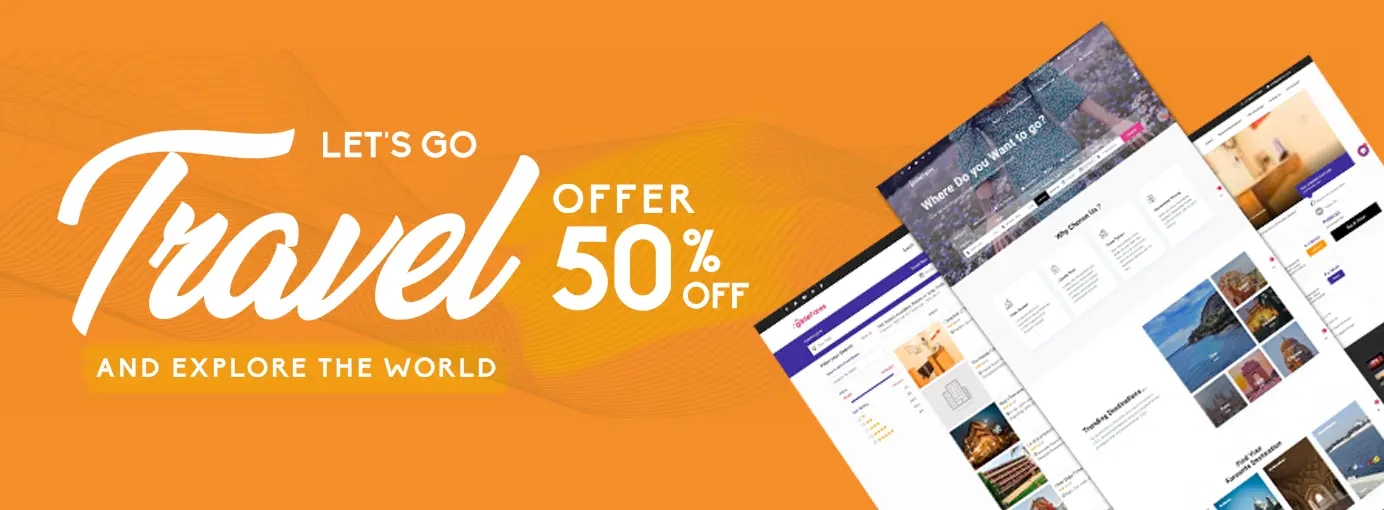Ready to go-LIVE travel solutions that helps your travel agency to sell a range of travel services pretty instantly. adivaha® travel solutions make sure you have no boundation over your imagination, you can do everything online, without the need for any technical knowledge or design skills. Easy Backoffice, extensive reporting with integrated Funds Management System.
Next-Gen B2B Travel Portal Development to Scale Digitally

In the fast-paced travel industry, a robust B2B travel portal is not just an advantage—it’s a necessity. Whether you are a travel agency, tour operator, or DMC (Destination Management Company), having a customized, feature-rich B2B travel platform can automate bookings, expand your inventory, streamline operations, and skyrocket profits.
This article covers every aspect of B2B travel portal development, from must-have features and integrations to monetization models, and best practices. It’s tailored for decision-makers looking to invest in scalable travel technology.
What Is a B2B Travel Portal?
A B2B travel portal is an online booking platform tailored for travel resellers—such as agents, tour operators, and wholesalers. It allows registered partners to book travel products like flights, hotels, tours, transfers, and more using a single dashboard.
Unlike a B2C portal which serves end-users, B2B systems offer bulk pricing, white-label options, agent-level mark-ups, and credit management features.
Why Invest in B2B Travel Portal Development?
A successful B2B travel portal integrates robust features that simplify operations, improve agent collaboration, and streamline inventory distribution for wholesalers, agencies, and distributors in the travel business.
Here are key reasons businesses opt for a B2B travel system:
- Global Inventory Access
- Agent Self-Service Capabilities
- Automated Booking & Invoice Generation
- Commission & mark-up Controls
- Real-time Availability & Pricing
Key Features of a B2B Travel Portal
1. Travel Agent Dashboard
It allows travel businesses to onboard multiple agents with specific pricing, markups, and commissions, ensuring flexibility and tailored access to services.
2. Multi-Layered Mark-up Management
Custom pricing control for agents, sub-agents, and branches.
3. Real-Time Booking Engine
This feature ensures instant access to flights, hotels, buses, and packages, reducing manual interventions and speeding up the booking process. Integrated with global inventory suppliers offering flights, hotels, transfers, etc.
4. Credit Limit and Wallet System
A built-in credit module helps administrators assign, manage, and monitor credit limits and balance utilization for each sub-agent securely and efficiently. Manage funds and set credit limits per agent.
5. Booking Reports and Invoices
Automated PDF invoices and financial summaries.
6. Multi-Currency and Multi-Language Support
Expand across geographies with localized content.
Modules in a B2B Travel Platform
1. Flight Booking Module
Integration with GDSs like Amadeus, Sabre, and airline APIs.
2. Hotel Booking Module
Connects with hotel wholesalers like Hotel-beds, GTA, and Web-beds.
3. Holiday Package Module
Dynamic packaging or pre-set package listings for agents.
4. Transfers & Car Rentals
Search, book, and manage ground transportation.
5. Visa & Insurance Module
Add-on services to increase value for agents.
Integration with GDS, APIs, and XMLs
API and GDS integrations are the backbone of real-time inventory and pricing.
Common API integrations include:
- GDS Systems: Amadeus, Sabre, Galileo
- Hotel Suppliers: HotelBeds, DOTW, Travco
- Bus & Car Rentals: Car Trawler, Europe car
- Payment Gateways: Stripe, Razor pay, PayPal
Benefits for Travel Agencies and Distributors
- Increase Agent Network: On-board unlimited sub-agents
- Enhance Profitability: Flexible commissions and mark-ups
- Reduce Operational Overheads: Automate repetitive tasks
- Brand Expansion: Offer a white-labelled booking platform
- Better Customer Experience: Fast and reliable search & booking
B2B vs. B2C Travel Portals: Key Differences
Feature |
B2B Portal |
B2C Portal |
Audience |
Travel agents, resellers |
End customers |
Pricing Model |
Net rate + markup |
Retail rate |
Credit System |
Yes |
No |
Custom Branding |
Usually Yes |
Limited |
Booking Volume |
High (bulk bookings) |
Individual bookings |
Choosing the Right Development Partner
Checklist to Evaluate:
- Proven track record in travel tech
- API integration experience
- Custom UI/UX capabilities
- Scalable architecture
- Ongoing support and maintenance
Future Trends in B2B Travel Technology
1. AI-Powered Booking Assistants
Enable voice and chat-based searches.
2. Blockchain for Secure Payments
Reduces fraud in agent settlements.
3. Dynamic Packaging with AI
Create personalized packages in real-time.
4. Sustainability Filters
Eco-friendly hotel and flight options.
B2B travel portal development is the digital backbone for modern online travel agencies, tour operators, and consolidators seeking scalability and efficiency. With powerful features, seamless integration, tangible business benefits, and modern tech stacks, these portals drive revenue, reduce costs, and improve agent relationships. While B2C travel portal development targets individual customers, B2B models foster long-term partnerships, empowering agents with real-time tools and inventory access. When designed with a white label travel portal development approach, it also supports brand identity and business expansion. Embracing these systems is essential for staying competitive in the travel industry.
